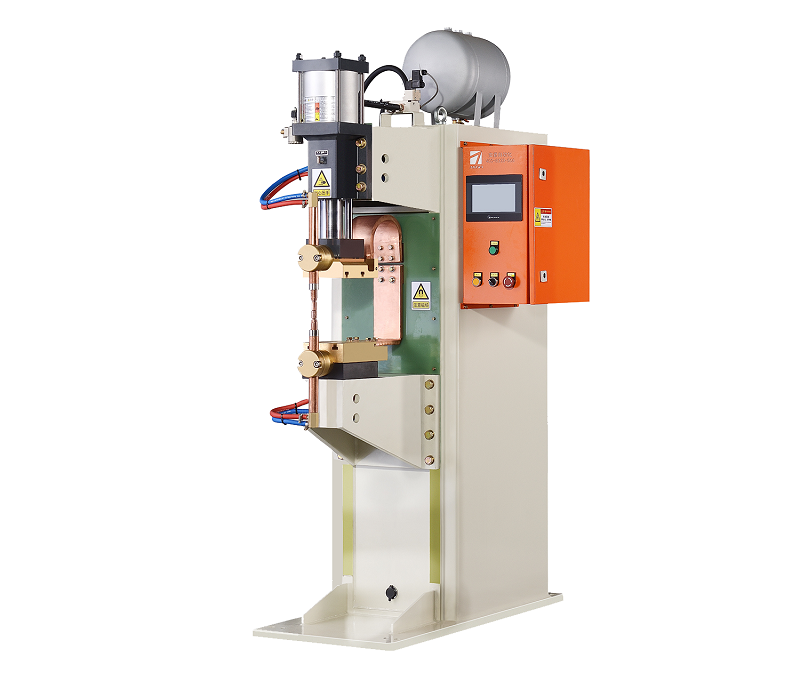In medium frequency inverter spot welding, the welding time plays a crucial role in determining the quality and strength of the weld. This article highlights key considerations that operators should keep in mind when setting the welding time parameter.

Welding Time Selection:
When determining the welding time, several factors should be considered, including the material type, thickness, and desired weld characteristics. The welding time should be sufficient to ensure proper fusion and bonding between the workpieces. It should also be optimized to prevent excessive heat input that could lead to material damage or distortion. Conducting test welds and referring to welding guidelines can help in selecting an appropriate welding time range.
Joint Design and Configuration:
The complexity and design of the joint also impact the welding time required. Complex or large joints may require longer welding times to ensure complete penetration and fusion. Additionally, the configuration of the joint, such as overlapping sheets or different material combinations, can influence the welding time needed to achieve a reliable weld.
Process Optimization:
To optimize the welding time, operators should consider process factors such as electrode force, welding current, and electrode shape. These parameters should be properly adjusted and synchronized to ensure effective energy transfer and consistent weld quality. It is important to strike a balance between the welding time and other process variables to achieve the desired weld characteristics.
Monitoring and Inspection:
During the welding process, continuous monitoring of the weld quality is essential. Operators should visually inspect the welds for any signs of incomplete fusion, porosity, or other defects. Additionally, non-destructive testing methods, such as ultrasonic or X-ray inspection, can be employed to ensure the integrity of the welds. If any issues are detected, adjustments to the welding time may be necessary to improve the weld quality.
Operator Experience and Training:
Operator experience and training play a vital role in setting the welding time accurately. Experienced operators can assess the weld pool formation and monitor the overall welding process to determine if any adjustments to the welding time are required. Regular training and skill development programs can enhance operator competency and contribute to consistent and high-quality welds.
The welding time parameter in medium frequency inverter spot welding requires careful consideration. By taking into account factors such as material type, joint design, process optimization, monitoring, and operator expertise, operators can ensure that the welding time is set appropriately to achieve reliable and robust spot welds.
Post time: May-16-2023


